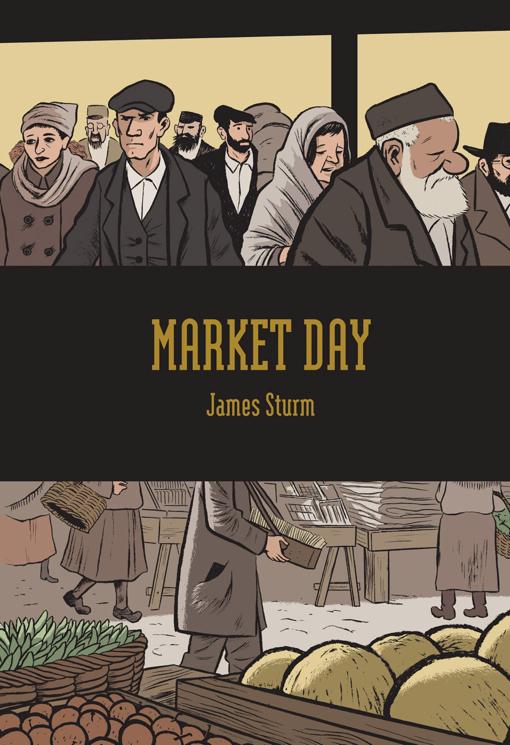Market Day
Reviewed by Jonathan Bogart 24-Nov-10
Graphic novels which attempt ambitious work in a self-consciously “literary” manner are still unusual enough that the appearance of a new one, however successfully it achieves its aims, is always cause for comment. James Sturm has been one of the quieter art-comics auteurs for a while now, steadily mining a seam of historical-realist narratives that rely on no flashy formal play or outrageous social commentary; his stories, like his artwork, are direct, to-the-point, and superbly crafted.
Graphic novels which attempt ambitious work in a self-consciously “literary” manner are still unusual enough that the appearance of a new one, however successfully it achieves its aims, is always cause for comment. James Sturm has been one of the quieter art-comics auteurs for a while now, steadily mining a seam of historical-realist narratives that rely on no flashy formal play or outrageous social commentary; his stories, like his artwork, are direct, to-the-point, and superbly crafted.
Sturm’s artwork is more evocative than it’s ever been in this account of a day (and a bit) in the life of a carpet-weaver in a small Jewish settlement in Eastern Europe. Unlike his previous major works (handily collected by Drawn & Quarterly in a single volume called James Sturm’s America), it’s in full color, and his controlled, masterly use of natural tones is a revelation, particularly in the opening sequence, in which our hero walks to market as the sun comes up.
What happens to him there — and, crucially, what doesn’t happen — is best left to the reader to discover; but Sturm here enters the very short list of cartoonists whose work could be spoken of in the same breath as Chekhov. Meticulously researched and staged, this short book is an unsparing meditation on religion, capitalism, art, and community, and the destructive influence each can have on the rest. But as the setting recalls the short stories of Sholem Aleichem even more than those of Chekhov, it’s only fitting that it’s frequently also a very funny book, earthy and honest without ever stepping outside of its historical period.
Books like Sturm’s often come in for criticism from a certain quarter of comics fandom for having abandoned the pulpy, vital, disreputable origins of the form and trying to act like *gasp* *choke* literature. Trying, my ass. Market Day is literature, and good literature at that. There will never be any shortage of lowbrow, high-concept whiz-bangery in comics; that a master at plumbing the depths of the human heart is still, despite the high-effort, low-reward nature of the medium, putting his work in comics form remains all too rare.
Tags: Drawn & Quarterly, James Sturm
I have to say, I don’t agree that this is literature. It’s still a comic. It may have lots of the values and qualities of serious literature, but I don’t think that means it cross artforms. This is obviously not to denigrate it, or to suggest comics shouldn’t aspire to such qualities.